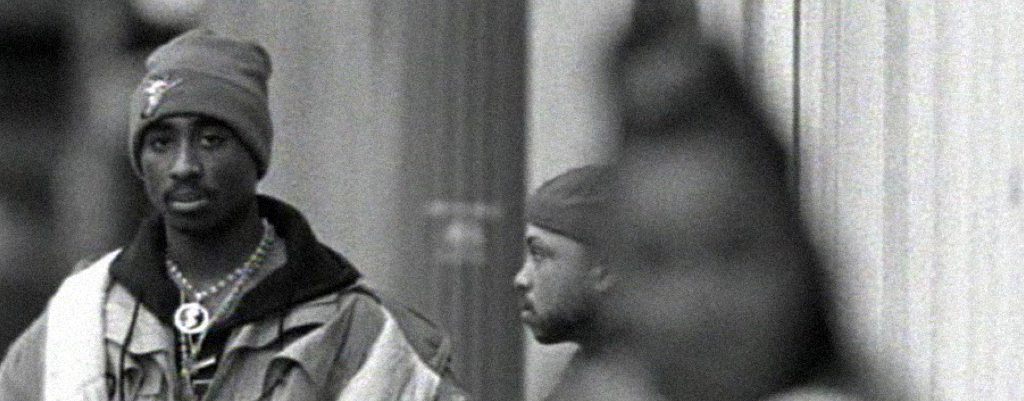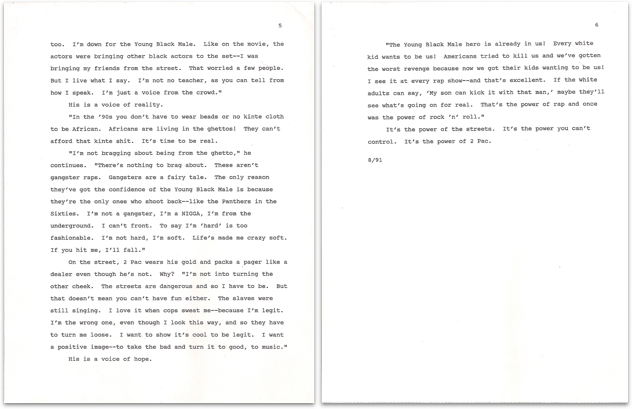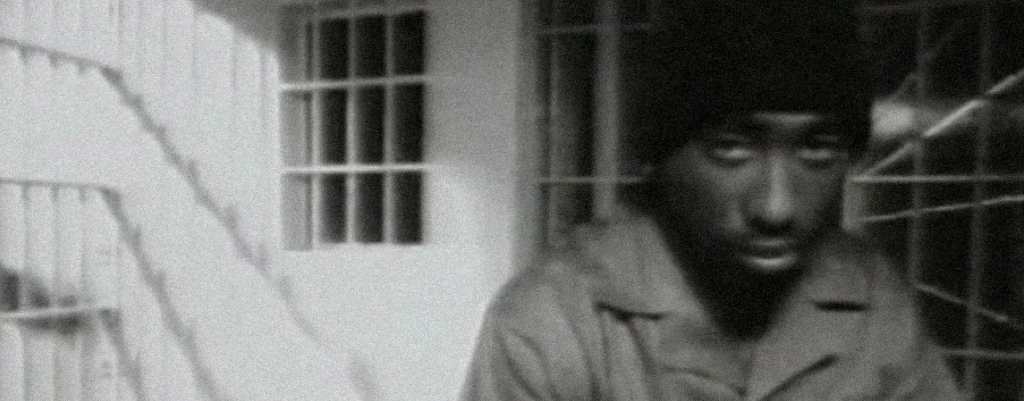2Pac was featured on Digital Underground’s “Same Song” from the This Is An EP Release project, which was also performed in the film “Nothing But Trouble.” Today, the folks who were trying to kill him are fans. “When you’re rapping you gain a posse and make more friends. Now they come to get an autograph.” It may soon be the autograph of not only a music star but a movie star too. 2Pac has a major role in “Juice,” a film written and directed by Spike Lee’s cinematographer Ernest Dickerson, which will open on the Martin Luther King, Jr. holiday in late January. The story is that Money B was going to an audition and 2Pac simply hitched a ride to somewhere else. But as Money read the script, he started teasing 2Pac that one of the characters acted just like him. When they got to the audition, 2Pac asked if he could read for the part and immediately won the role of the villain, the best friend-turned-murderer. Ironically, he’s become the actor he started out to be. However, 2Pac remains a staunch member of Digital Underground. “D.U. is an empire not a group,” he points out and he’ll be heard on its next album, Sons Of The P (Meaning Parliament or Panthers).

Staying true and sticking together is important to 2Pac. 2Pacalypse Now was produced by what he calls The Underground Railroad (an overall title that includes himself, Big D the Impossible, Shock G, Pee Wee, Jeremy, Raw Fusion and Live Squad). “It’s like when Harriet Tubman took the slaves north. Dope dealers are like slaves, trapped, and rappers are like conductors on this underground railroad taking them to something better. In my posse I’m talking about brothers who used to be kingpins. They trust me so I got to be large. What I get, the homies get too. I’m down for the Young Black Male. Like on the movie, the actors were bringing other black actors to the set—I was bringing my friends from the street. That worried a few people. But I live what I say. I’m not no teacher, as you can tell from how I speak. I’m just a voice from the crowd.”

His is a voice of reality. “In the ‘90s you don’t have to wear beads or no kinte cloth to be African. Africans are living in the ghettos! They can’t afford that kinte shit. It’s time to be real.” “I’m not bragging about being from the ghetto,” he continues. “There’s nothing to brag about. These aren’t gangster raps. Gangsters are a fairy tale. The only reason they’ve got the confidence of the Young Black Male is because they’re the only ones who shoot back—like the Panthers in the sixties. I’m not a gangster, I’m a NIGGA, I’m from the underground. I can’t front. To say that I’m ‘hard’ is too fashionable. I’m not hard, I’m soft. Life’s made me crazy soft. If you hit me, I’ll fall.” On the street, 2Pac wears his gold and packs a pager like a dealer even though he’s not. Why? “I’m not turning the other cheek. The streets are dangerous and so I have to be. But that doesn’t mean you can’t have fun either. The slaves were still singing. I love it when cops sweat me—because I’m legit. I’m the wrong one, even though I look this way, and so they have to turn me loose. I want to show it’s cool to be legit. I want a positive image—to take the bad and turn it to good, to music.”

His is a voice of hope. “The Young Black Male hero is already in us!” Every white kid wants to be us! Americans tried to kill us and we’ve gotten the worst revenge because now we got their kids wanting to be us! I see it at every rap show—and that’s excellent. If the white adults can say, ‘My son can kick it with that man,’ maybe they’ll see what’s going on for real. That’s the power of rap and once was the power of rock ‘n’ roll.”
It’s the power of the streets. It’s the power you can’t control. It’s the power of 2Pac.
